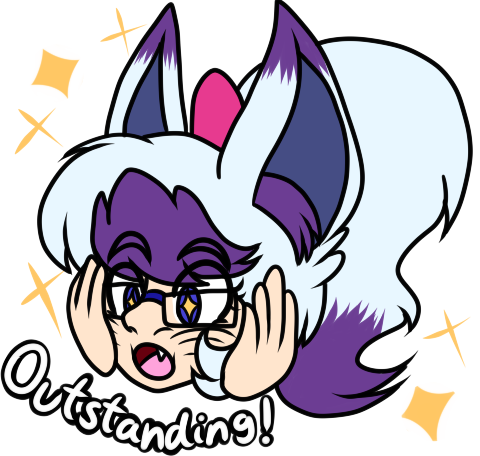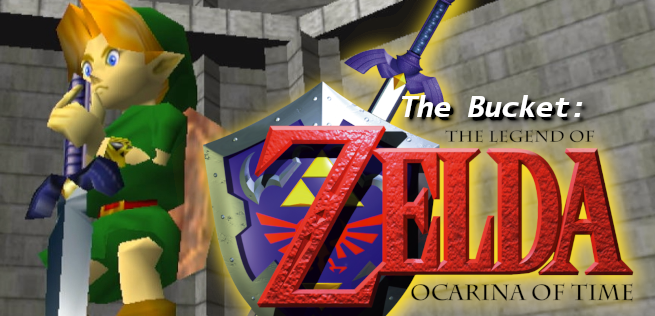
The Bucket: The Legend of Zelda: Ocarina of Time
There are still, to this day, some pretty glaring gaps from my gaming experiences. But no hole in my library feels quite as obvious and having a crack over it and begging to be bombed as The Legend of Zelda: Ocarina of Time. For one thing, I was a Nintendo kid, and one that had the N64 be my first console ever. And this game was like, loved by millions, at least until another Zelda came along to become everyone's new favorite. How did I end up an odd one out!?
Probably had something to do with being 6 years old, and I hadn't quite grasped the concept of save files and how a rented copy might have someone else's in-progress game on it. So my sole childhood memories with this beloved classic are coming out of Kokiri forest, spamming Din's Fire on Stalchildren until I ran out of magic, wondering why I couldn't do the cool explosion attack anymore, and then getting lost because I barely ever wanted to read and wound up ultimately dying to the redeads in a pit somewhere, thenceforth deciding Zelda is stinky and boring and went back to Banjo-Kazooie. What can I say. Though even in a world after I feel I can call myself A Fan of Zelda, having Twilight Princess be the game that finally breaks the ice for me, it still took me a long long time to finally go back and play the OG 3D Zelda.
I don't know why now of all times felt especially right. Maybe it's because Tears of the Kingdom has left me burnt out and very whelmed and this classic 3D Zelda thing that a faint fringe of people will still say is better than the new ones is worth a shot. Maybe especially because Ocarina is a little less swooned after these days, even compared to its contemporaries. Either way, I felt the itch to finally get OoT off my Bucket List.
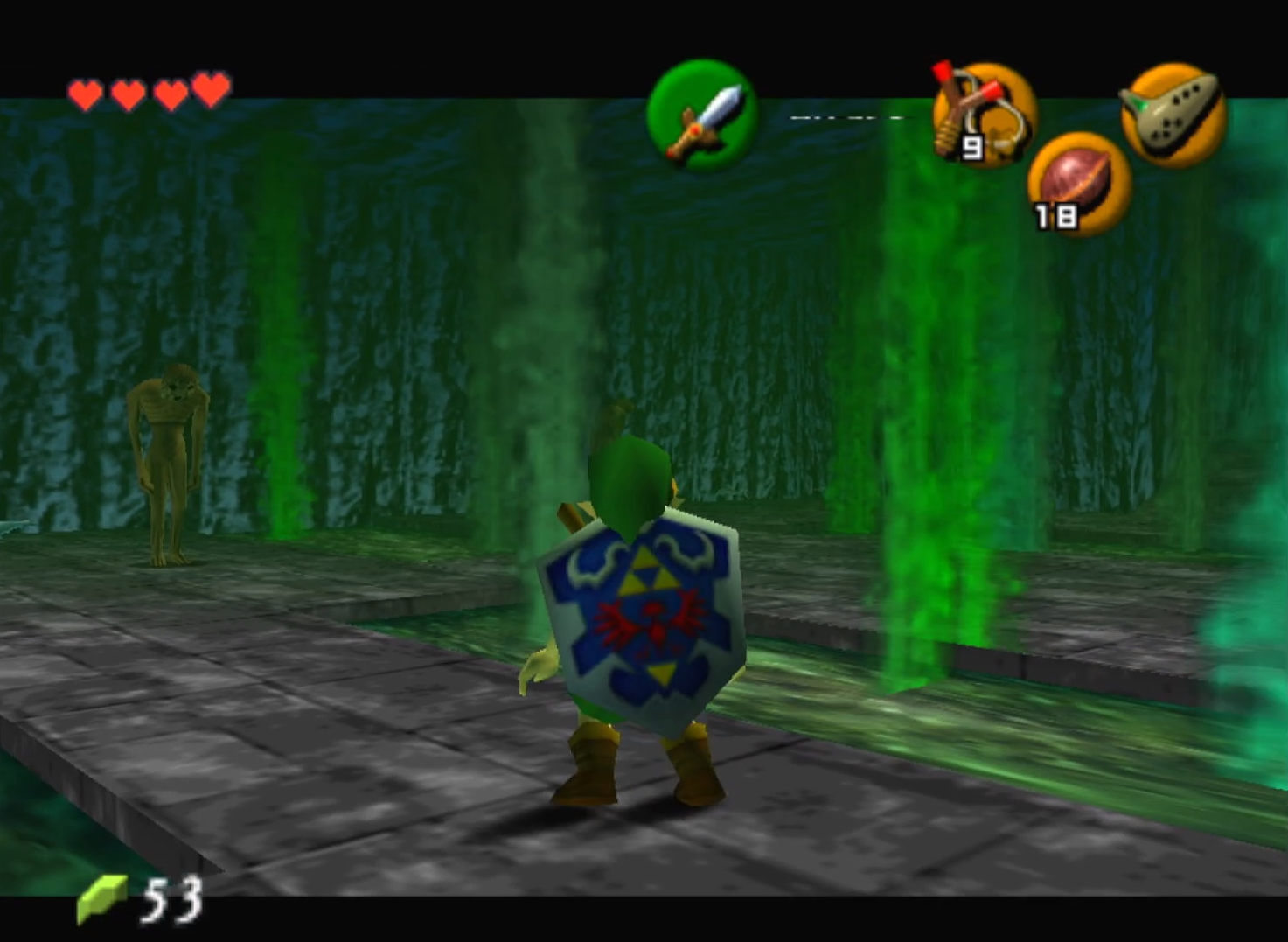
And let me tell ya, it feels WEIRD to have a game like this be one you've barely played ever before only to just play it on a whim in 2024 of all times. It's like the gaming equivalent of saying you've never watched The Empire Strikes Back and then just deciding one day "I'm gonna watch The Empire Strikes Back." Who just decides "Sure, I'll try out this Star Wars Original Trilogy thing everyone praises so much" like it's no different from treating yourself to a nice burger. A weirdo like me, that's who.
Ocarina of Time still barely registers as something I've fully experienced now. Like, my brain continues to see it as something that's just so unobtainable, even months after beating it I see Ocarina and think "That Zelda I haven't played yet-no wait a minute." Like you don't JUST engage with a piece of media you haven't before that changed the entire game out of the blue like that. Your brain just can't process it.
And the game very much has some aging pains to get over. I can be fairly tolerant to old game jank-ins, but not completely. And Link doesn't quite move with the finesse it feels like the game expects of him at times. With plenty of needlessly narrow walkways and perilous platforming in a game where your only mode of jumping is to run at a ledge as fast as you can. A surprisingly elegant solution to keep some buttons freed up, but it does still result in moments where he leaps when I was only trying to nudge myself close to an edge, or situations where I felt like I was hitting a ledge with the necessary speed and he just takes the plunge instead.
And I think the biggest offender of the geriatric jankiness is none other than Navi. Not for THAT reason. Maybe just because I'm used to far worse offenders, but I don't think Navi's actually THAT annoying. But she sure as heck is slow on the uptake when it comes to me wanting my eyeballs on a flying enemy and she is just absolutely clueless about it until the Keese has already bonked me.
But, being real, this is all to get the obvious complaints out of the way because the rest of this game kicks ass.
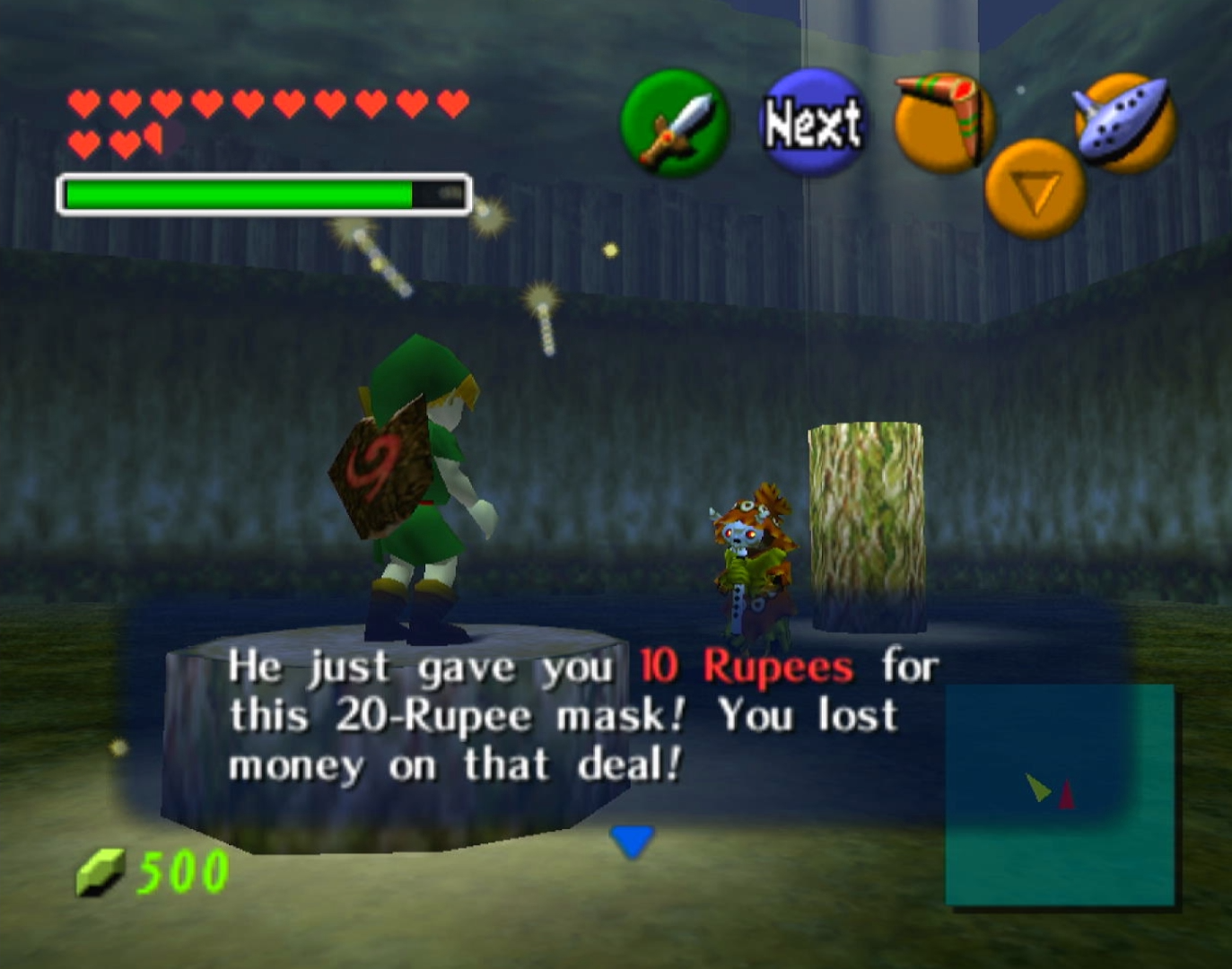
It's almost kinda hard to write up a review of Ocarina because it's a game that's been talked about to death. How much left can there be to say about it? I think I could at least provide the insight to what I love so much about it with the many ways it does things modern games just don't anymore, since those were its most major stand-outs to me. But I will still be giving a general overview of how I feel about the game. That's just the way I tend to structure my bigger media reviews, I like going from a starting point and hopping to other points off of tangents where it feels appropriate until I run out of gents to tan.
Something that stood out to me when I really got to thinking about it is how little this game actually holds your hand. Sure, for most of the adventure you're on a fairly linear track, especially if you're hopping from main quest objective to main quest objective, doing nothing but Mcguffin Hunting. But it almost plays like an especially large Metroidvania, with whole segments of game silently opening up to you as you get the major upgrades. Logistically, the only thing keeping you from the Gerudo Fortress is having the Longshot to cross the ravine. You're still likely to hit a road block when you try to traverse the Haunted Wasteland without the Lens of Truth, and eventually hit a dead end when the Spirit Temple expects you to have the Hover Boots, but I appreciate the way it permits you to enter an area but hit an eventual roadblock.
Sure, this inevitably means the Spirit Temple portion of the game isn't worth visiting until you get the Lens of Truth and Hover Boots to be able to actually complete the dungeon, at least if you're playing most optimally, but I do like that you're just allowed to explore that space, since it feels like other games would create much more arbitrary road blocks just to tell you "Nono, it's not time to go this way yet."
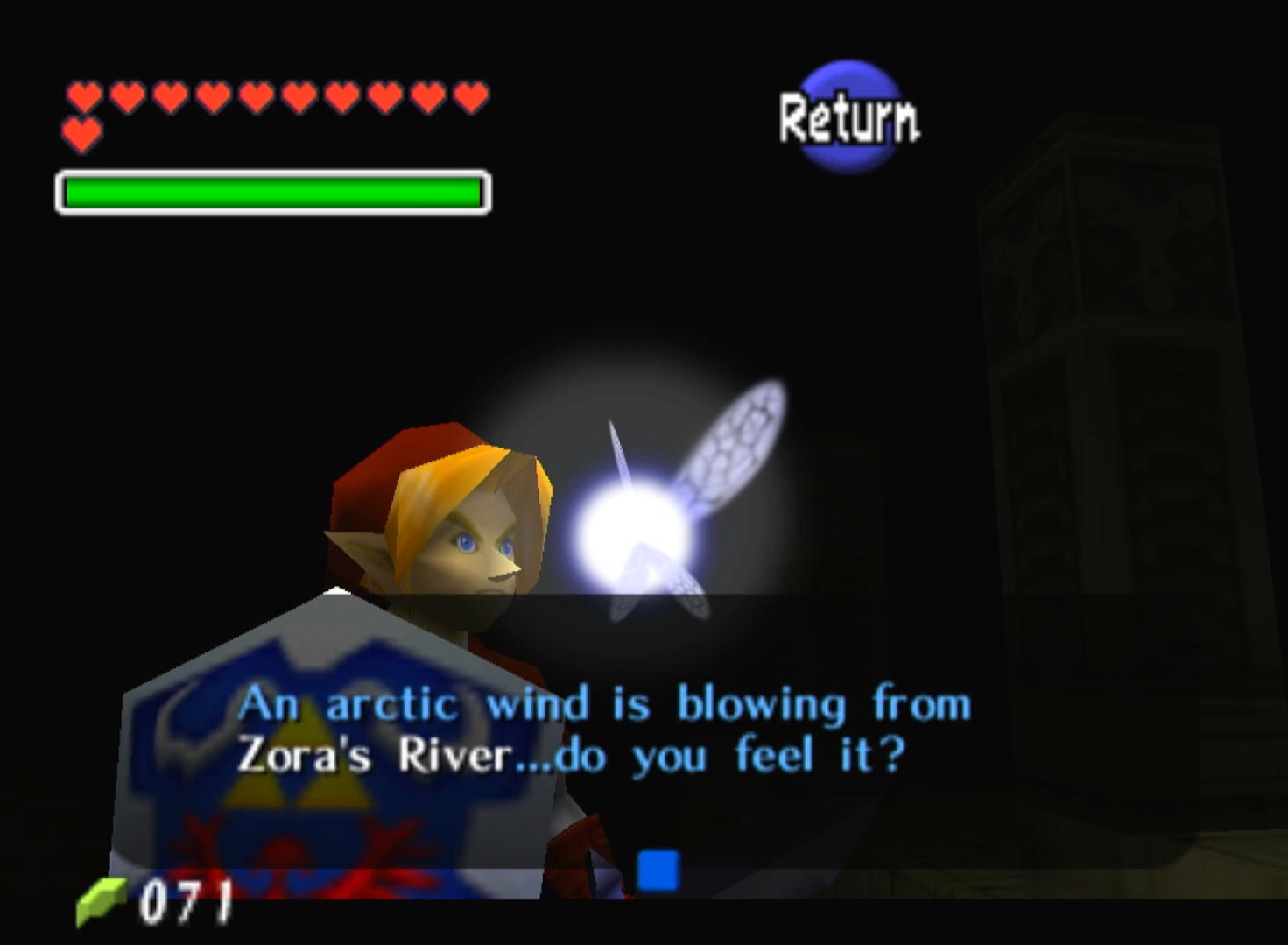
Navi is pretty much the only thing reminding you to keep on track through the most optimal path in the game, but it is just about the only way she's all that annoying. Especially when I'm NOT being a Nosy Nancy and just trying to engage with the side content. Said side content that feels free of more modern game design shackles in that there's no big to-do list of quests related to whatever NPCs you manage to talk to or hints from Gossip Stones you get. The onus is on you to keep all these pointers and quests in mind, which. I'm the type of gamer that just feels the need to complete a game to the most reasonable capacity I can if I'm really enjoying it, and on top of that, enjoying the side-attractions, too. But something I've grown to be grossed out by is Quest Logs.
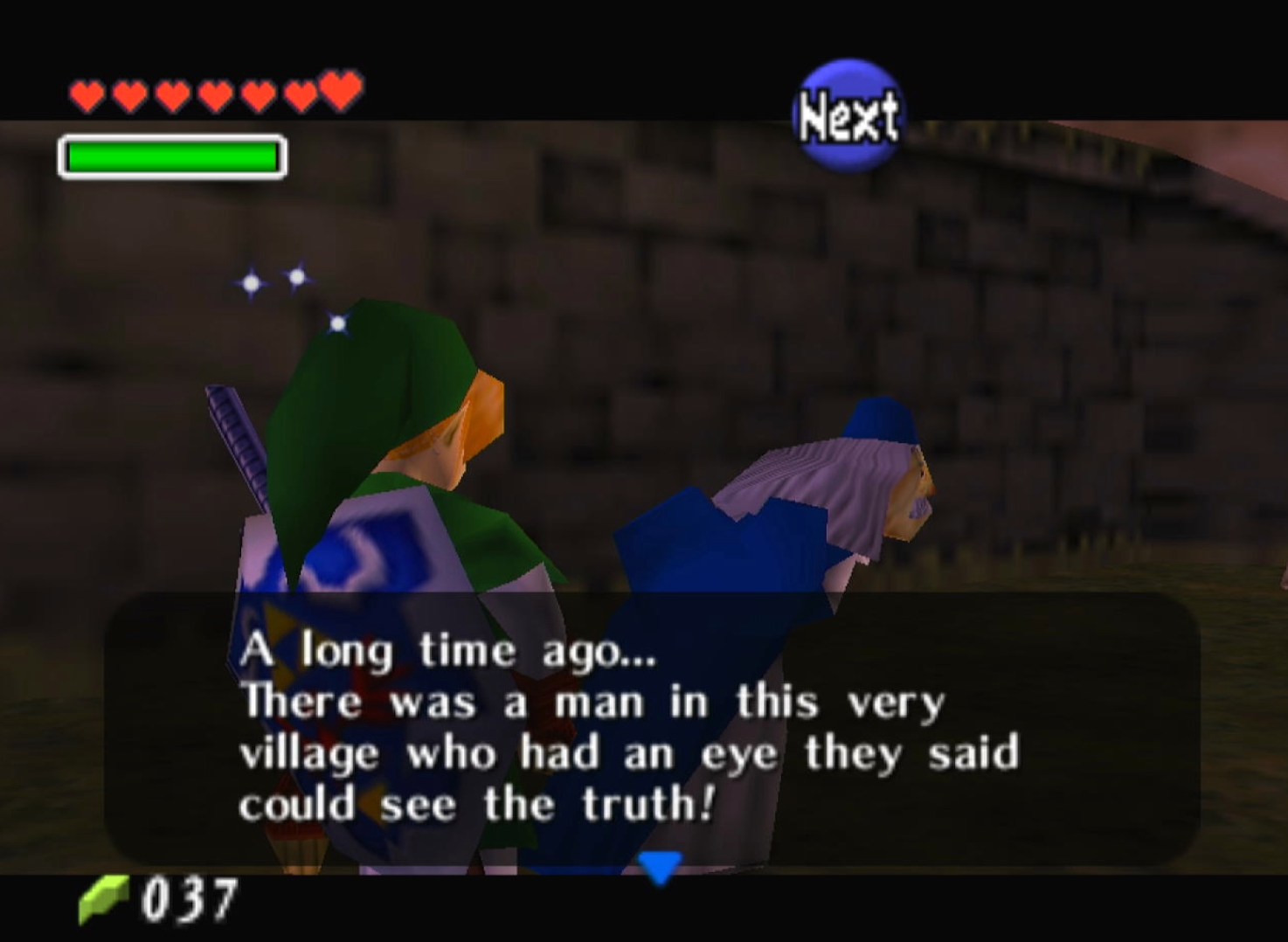
They're handy as tools, don't get me wrong, there's plenty of games where they do kind of feel like a must to keep track of Everything. But when everything from a major side-quest to a minigame that gives you some pocket change is given the same gravity, it really muddies what feels worth engaging with and what doesn't. It's really refreshing to just talk to an NPC who carries on about some mysterious man that could see things that weren't normally visible, and there isn't some text that slides onscreen to announce: "MAIN QUEST: THE EYE OF TRUTH" or anything like that. Or you find Talon mention his ranch has been taken over by Ingo, the game not immediately urging you to go take care of that beyond Talon and Malon just being some people you might want to help out.
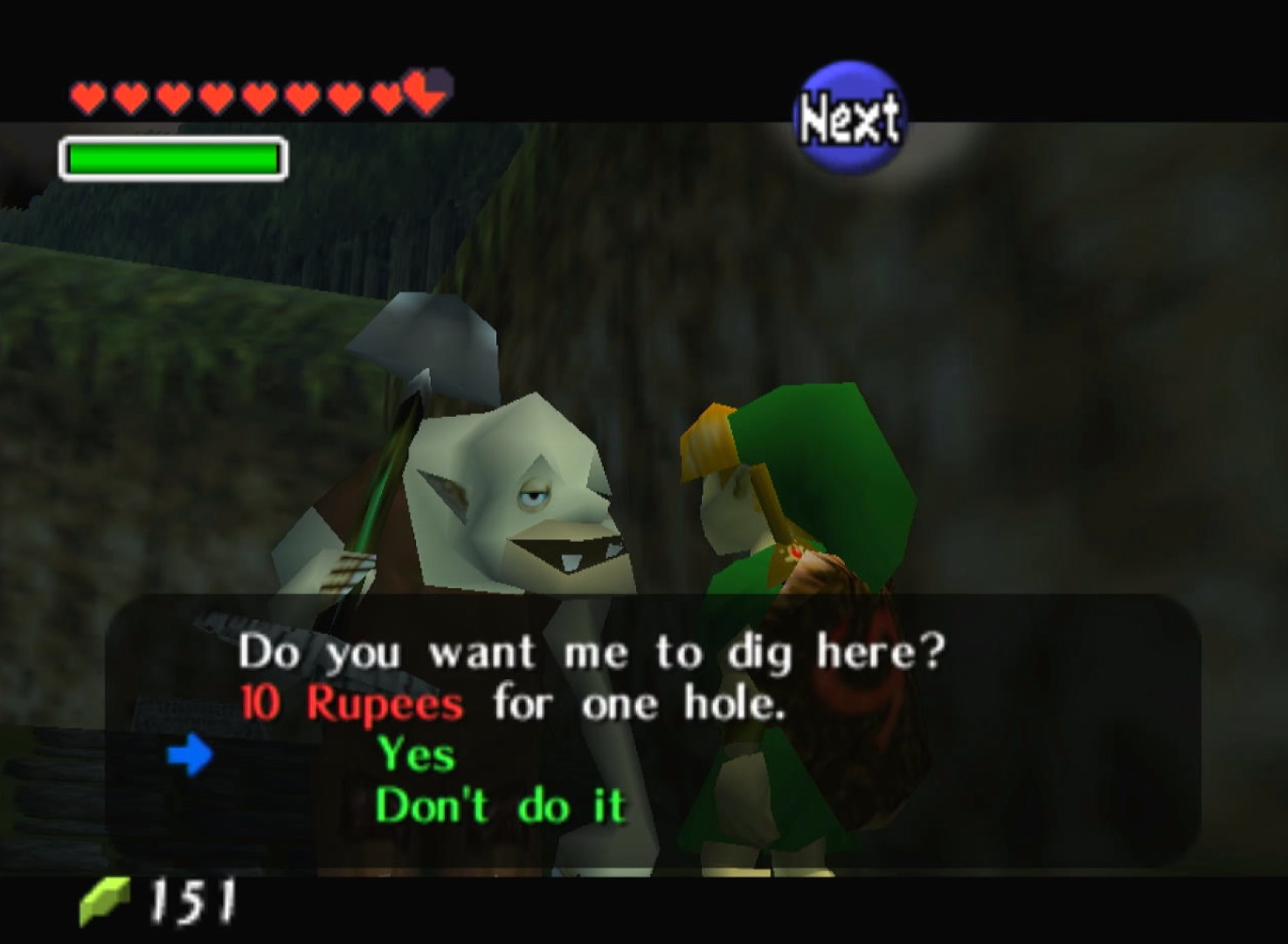
It's made even the minor NPCs that you barely NEED to interact with stand out a lot more, vs. modern To-Do-List games which kind of just have a guy with a ! over their head so you know they give you a thing. Compare that to Dampe's ass, who isn't even present most of the time without you going out of your way to meet him. And even THEN he's just some dude that slowly trots around and may or may not dig up something useful if you ask him enough times. Completely random, from what I can tell. And he's a dude you need for a Piece of Heart. Your child-like wonder goes off just because he's a unique face even among a wider cast of extras that also have unique faces and maybe, just maybe, he'll dig up something useful this time.
It's such a vastly different side quest attitude from NPCs made from a fancier version of the Mii Maker doing various activities of their own, but the acts stand out a lot more than the NPCs themselves do. At least, they have to be Kilton or Hudson-tier important to get the same stand-out design sensibility as Dampe or even the Running Man. And even then, these tasks mostly just give you rupees or an uncommon item.
And it also just makes engaging with side-quests feel much less of an obligation. By the end of Tears of the Kingdom, there was a few quests I only did to free up some of the Adventure Log clutter and be able to find the stuff I actually wanted to do easier. And even then, the clutter won before it all became white noise and I just started B-lining towards Shrines instead.
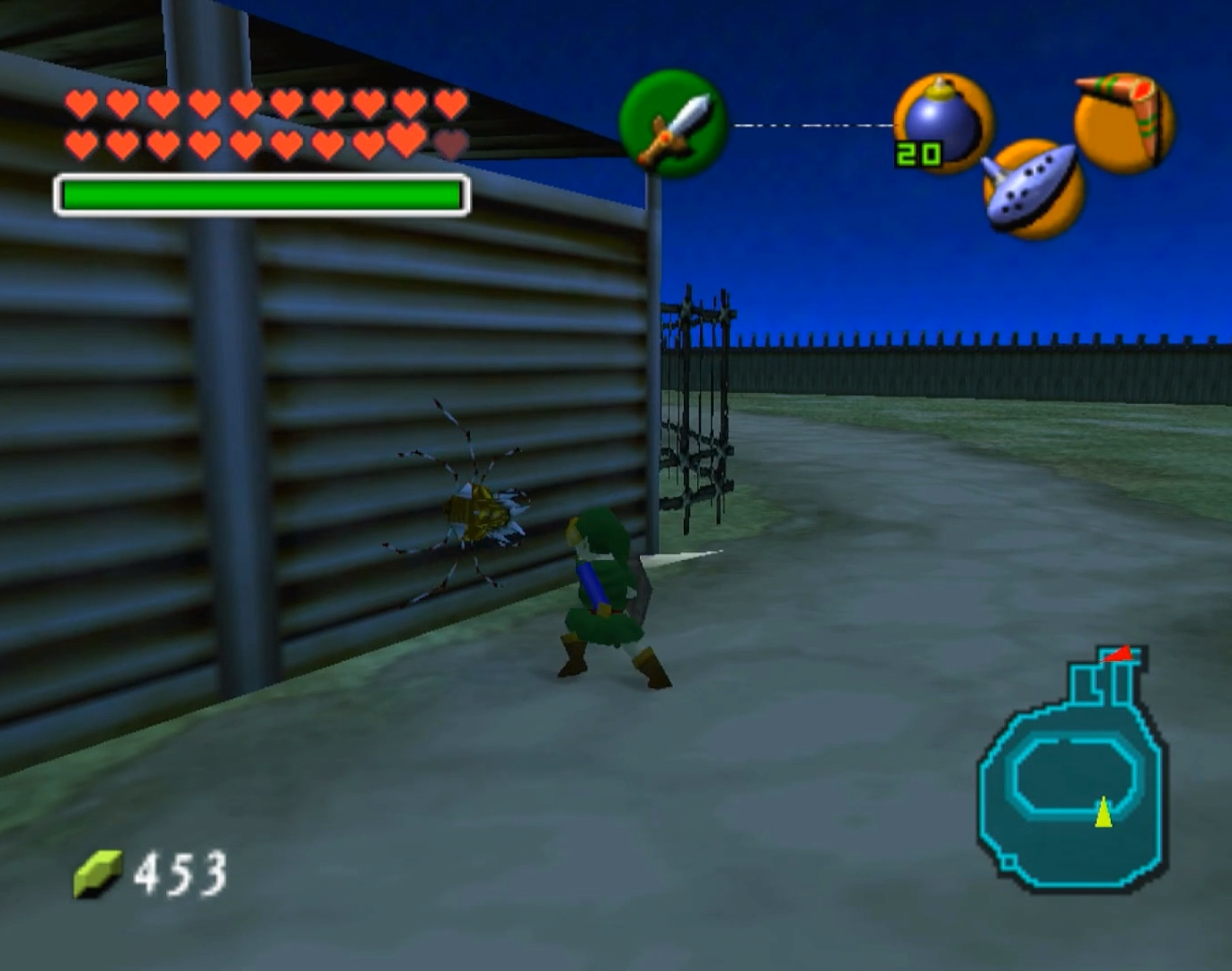
Here, some Gossip Stones and even some NPCs give you seemingly random tidbits to all sorts of hidden secrets. Not all leading to anything huge, but still. While I did collect every Heart Container, filled out the item screen, and collected all the Gold Skulltula tokens, I still feel like there's plenty to the game I haven't even seen yet. Who's to say there isn't some obscure little cave out there, the existence of which is only hinted about via a Gossip Stone's weird, riddled response.
While I believe both the Korok Seeds and Skulltula Token quests are made for excess specifically so you don't NEED to collect every single one, it is also nice to have the big, game-spanning collect-a-thon quest not feel Sysiphysian. I went after all the Gold Skulltulas, not because there was a worthwhile reward at the end, but simply because I wanted to and finding them was fun. And again, the task was feasible. Though that said, for any future playthroughs I'm definitely capping it at the 50 minimum required for the Piece of Heart, because woo-hoo rich people suffering!
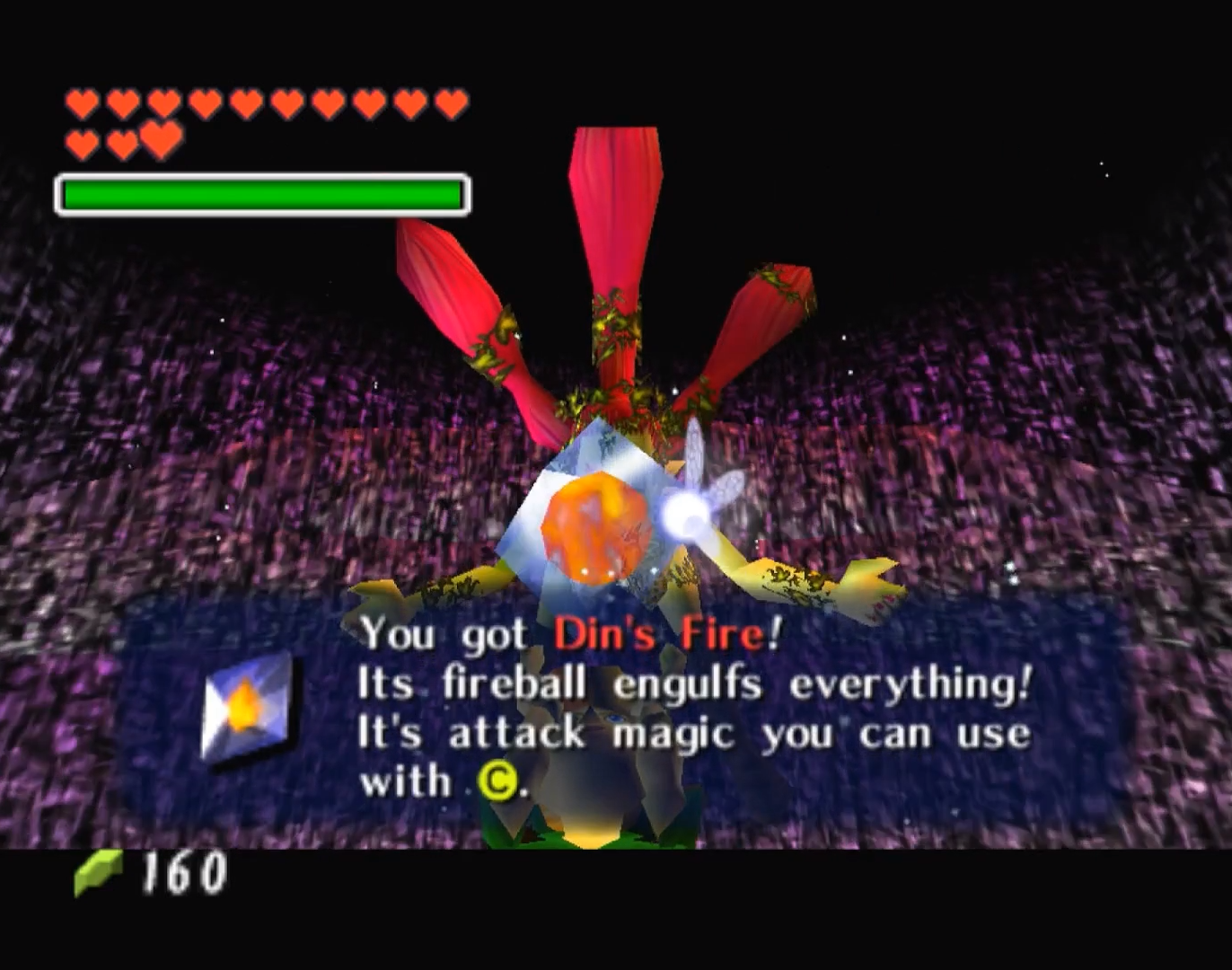
It's why I think it's not necessarily accurate to boil Ocarina of Time - or any game like it for that matter - down to just being "linear". Not that linear games are inherently worse, and sure, plot progression itself is linear, barring the one time you can take three of the dungeons in any order you want. But it's still a game that encourages you to snoop and sleuth around, else your main quest is gonna be a lot more difficult without a stockpile of bottles or way too many hearts for one chest cavity.
There is still the occasional "guide-dangit" moment, I feel like the most intrusive of which is the hidden grottos that require the Stone of Agony to find, and that's assuming you even have a rumble pack. Let alone be like me and playing this on the NSO library with a controller that has no rumble. But that's an exception more than anything, and the rest of the hidden secrets in the game are reasonably hinted towards and reward being inquisitive and intuitive.

The dungeon puzzles also took me off guard a few times with how little the solution is telegraphed sometimes. I'm used to Zeldas that pretty loudly nudge you towards which item you're supposed to use, much like how this game has its hook shot targets and rusty switches that need to be hammered down. But in Twilight Princess this felt present for almost every item. Spinner tracks, Dominion Rod statues, the works. Even the most modern Zeldas pretty bluntly have Shrine titles say things almost to the effect of "If only there was some way to ASCEND here".
I don't mean to keep picking on Breath of the Kingdom, by the way. I promise I love those games too, they just also happen to be good, fresh in-mind embodiments of what I'm talking about here.
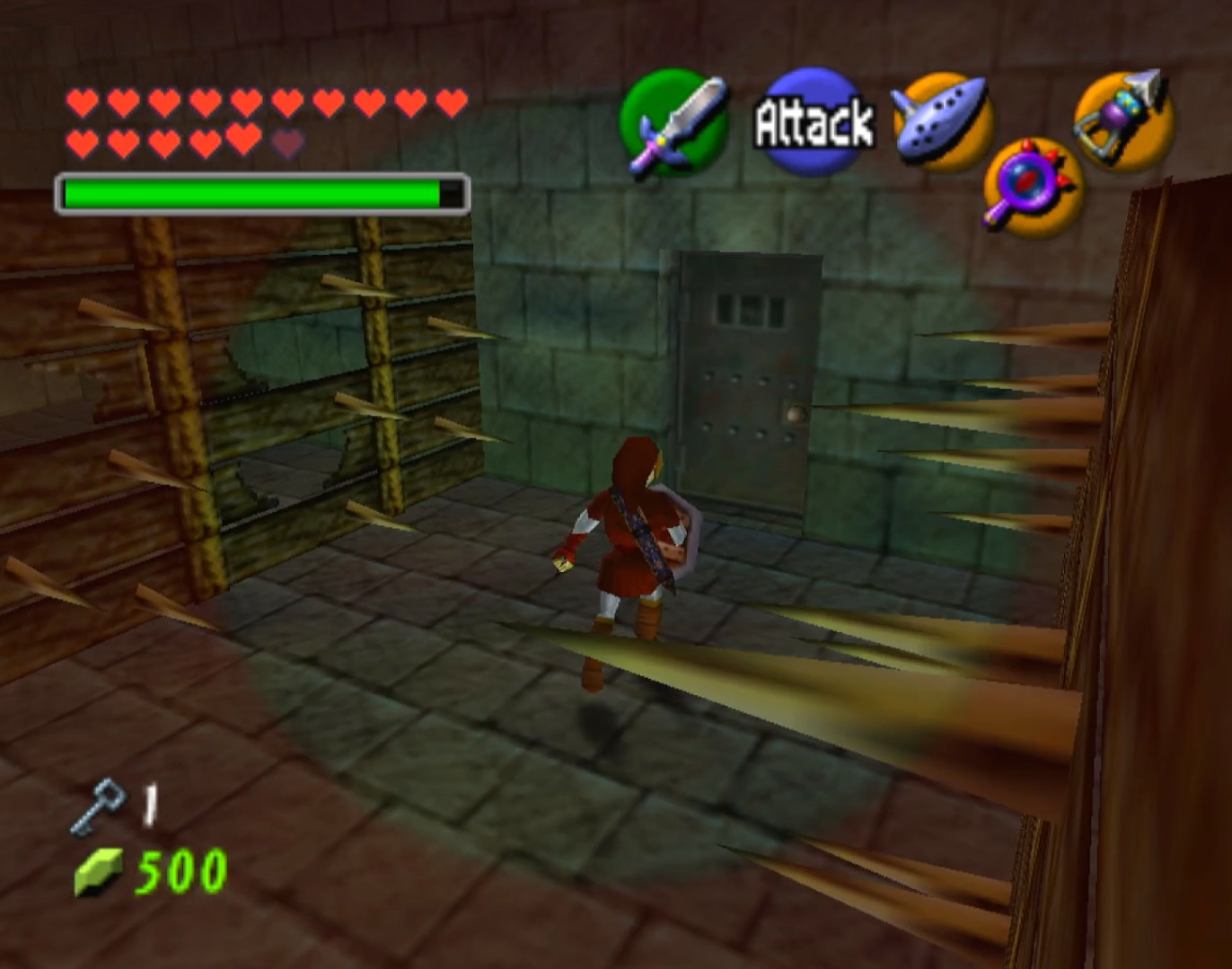
I just noticed the tells for item solutions were a little less obvious in this one. A cave-in wall trap in the Shadow Temple seems to just expect you to have Fire Arrows or Din's Fire at that point, but doesn't heavily signal that Fire Is The Solution beyond the walls being made of wood. Long gaps, even after getting Hover Boots kept getting me, again, because I'm so used to games like this very much paging over loud speaker for that item to come to the front, please. That and it feels like this game mixed and matches item solutions more often. The hookshot was a pretty universal constant once you got it, and they tended to hold the more situational items to be some of the last ones you get (Hover Boots, Mirror Shield, and especially the Golden Gauntlets.)
Hell, there's some mandatory areas where I swear the solution was an item I had assumed was optional. Or at least, I don't know how you get into the Shadow Temple without using Din's Fire to light all the torches. When again, something about that is kind of refreshing. To have progress be not so in-your-face, but rather be tucked into an easy-to-forget corner. Again, makes the whole thing feel like a big, 3D Metroidvania more than what I'm used to 3D Zelda being, when considering my previous frame of reference.
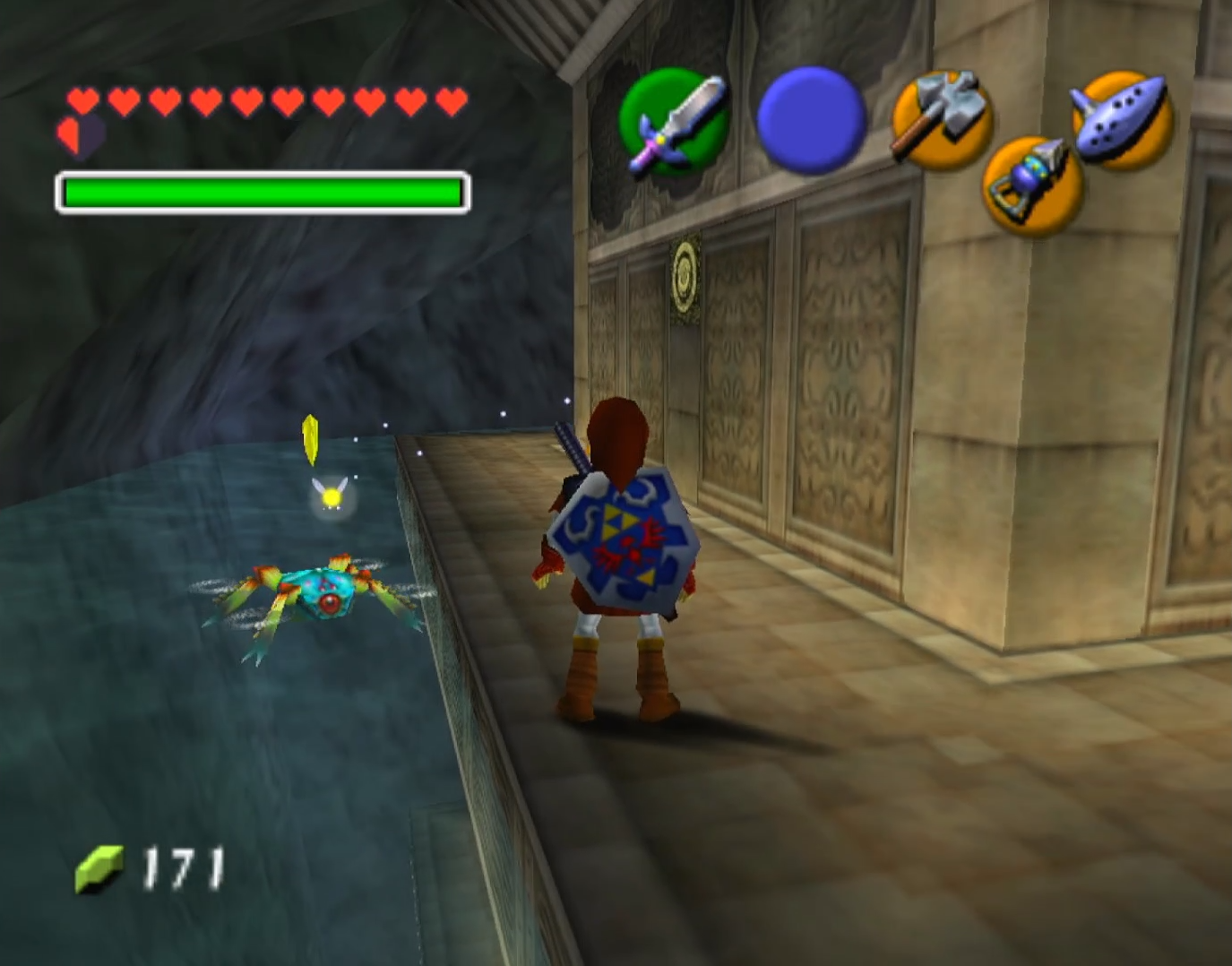
Obviously, for this game it's just about impossible to have NOT culturally absorbed a lot of information, especially when you just hang out in a Nintendo-centric sphere. I got an earful of both the good and bad, and it's funny to see not only the good reinforced, but the bad actually not turn out to be that bad. In part because yes, I'm an adult and a lot of the people are speaking as ones that experienced this game as children. But it's very funny to walk out of this game WITHOUT the supposed improvements the 3DS remake brings and still feel like Water Temple wound up being one of the cooler dungeons.
The only dungeon I was close to disliking was the Fire Temple, actually. If nothing else because it has pits that, rather than void you out, drop you to far earlier segments of the dungeon, and takes a good 7-10 minutes to climb back up. But even then it feels redeemed by the Megaton Hammer a bit. The Forest Temple, as a hidden ruin beyond the Lost Woods, felt appropriately perplexing, and I quite enjoyed even the simpler ventures through the more linearly explored dungeons. Perhaps only faltering in the thematic department; it feels like they blow through the creative dungeon applications pretty early with the Deku Tree and Jabu Jabu done away with in the first handful of hours, and the rest are just ancient ruins with different flavors.
This is likely holding onto more classical Zelda locales, where more if not all the dungeons were ALSO ancient ruins, but compared to what we get in the future, I quite like when the traditional definition of a dungeon gets done-away with, like TP's Snowpeak Ruins being a dilapidated mansion, or SS's Sandship and Ancient Cistern. Though of course THOSE gets the benefit of existing in a series where we've done so many flavors of water temple and fire temple, that even a little variance is fresh.

Combat is pretty much where the fruit of the fatigue lies. It's plenty functioning, and has a lot of means to bypass it through clever item usage (Or just beating your opponents with an even bigger sword.) to once again Boss Baby this into Metroidvania comparisons. I would still just say it's far from the game's highlight. I accept that it's there for the formality of defeating an evil king's evil army of evil skeletons or evil hand monsters. Some boss fights just either felt like jokes or genuine struggles with very little in-between. Sure, I'm willing to admit skill issue in that regard for some, but that is definitely telling like they had a hard time striking a fine balance with this formality when the mid-dungeon boss Shadow Link is infinitely more difficult than basically all the actual boss fights.
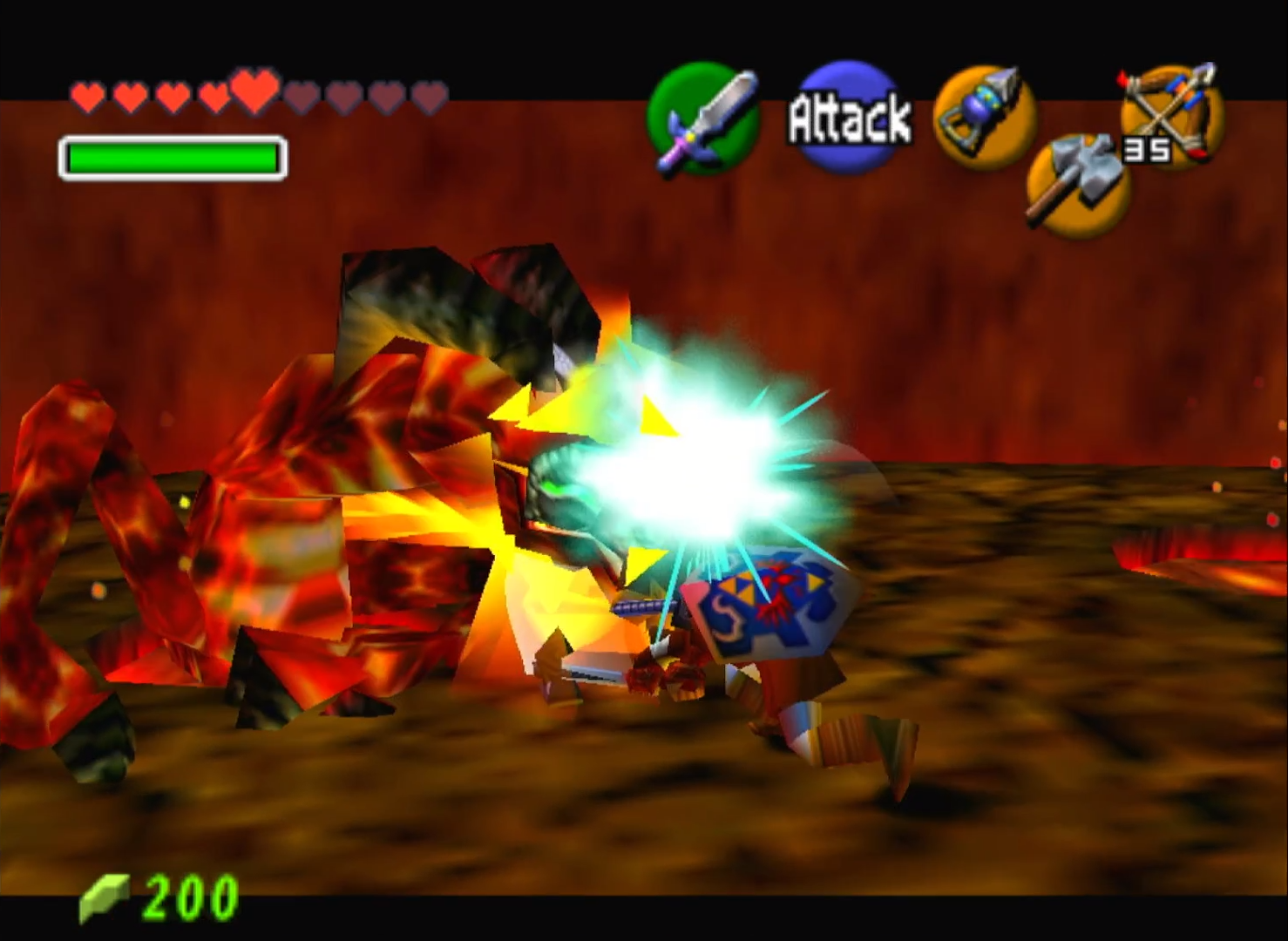
That's not to say combat doesn't have its moments. The sheer child-like glee of being given the Megaton Hammer for the first time just before it hands over a dragon with a skull begging to be cracked is some new-tool bliss I haven't felt from a video game in a while, for how simple an addition it is. And that was until I went to the extended effort of acquiring the Biggoron Sword and used it to jump-slash one-shot a Lizalfos for the first time, cementing it as my preferred weapon of the game.
And almost no two of the bosses are doing the same thing, helped in part for the item/puzzle solving focus on how to fight them. It perhaps doesn't always land; I think Twinrova drags on far longer than it remains interesting and isn't difficult enough to warrant it. But there was a magic spark here where I could see why this was THE video game back in 1998.
For all its evident aging, I think it does at least earn the excuse that this basically is the first mainstream game to really attempt combat on this scale, especially to have it be a part of the game that's overall interwoven with a bigger, open world like this. That and I do genuinely believe it's still held up incredibly well, even considering it is a game that's basically the first of its kind. It's kind of a highkey miracle this game got to aim this big for 1998 and nail the landing as well as it does. In a big transitionary period for video games, as we were stumbling across this third, newfangled dimension, Ocarina of Time boldly stated The Legend of Zelda was here to stay.
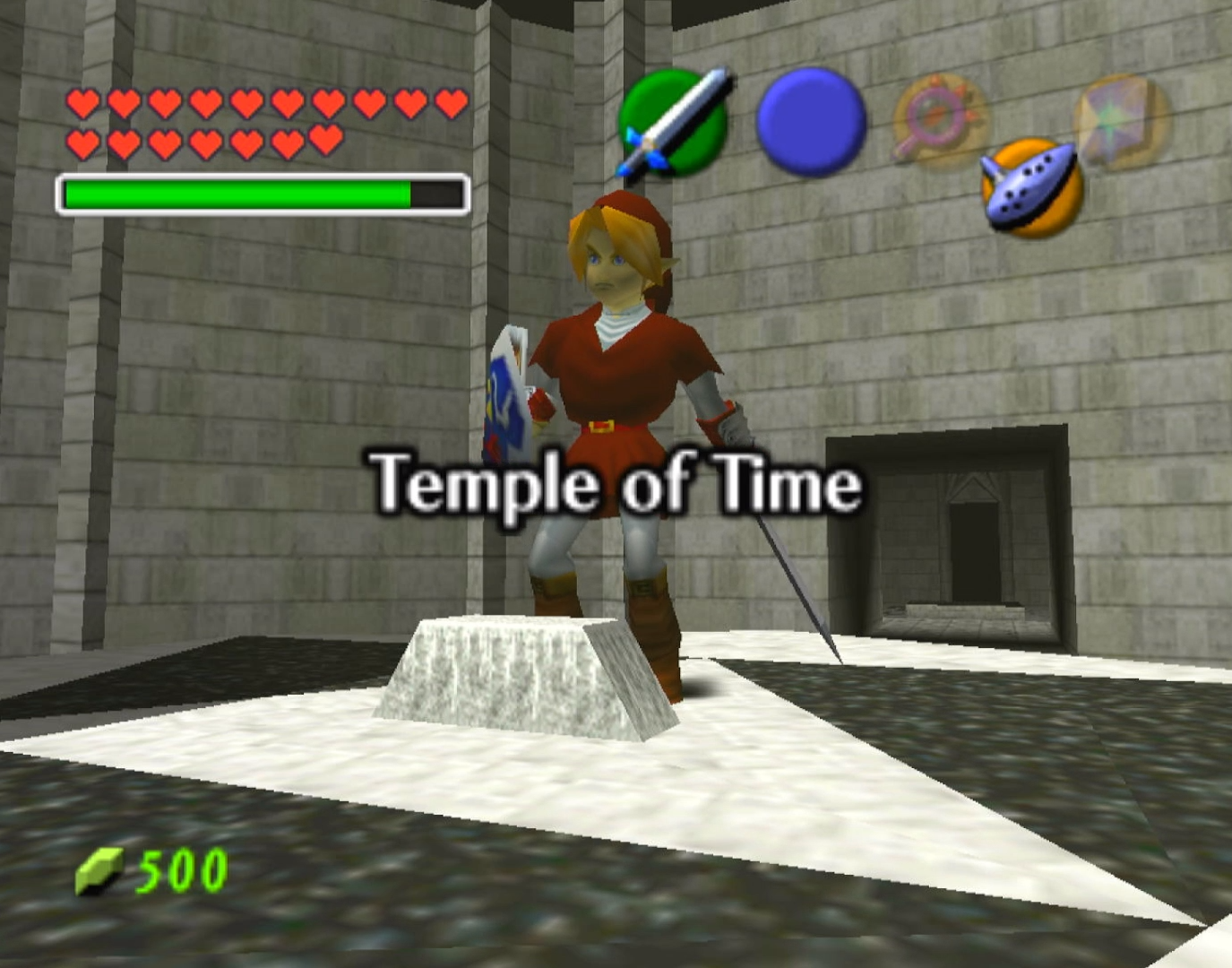
And there likely was at least some deliberation between said statement and the themes around the passage of time in the game. Video games were in the middle of changing forever with this generation, as well as how the game distinctly makes the move to rather literally age-up Link before our very eyes. He had always had some child-like qualities to him in all his incarnations, but now this made the distinct effort to show him in a more grown-up light. A light that perhaps isn't all that different from how he's normally portrayed; he is still ultimately a mostly blank slate you can project your preferred personality of persuasion onto. But he's still used as a vessel to tell a tale about having to grow up due to forces out of your control.
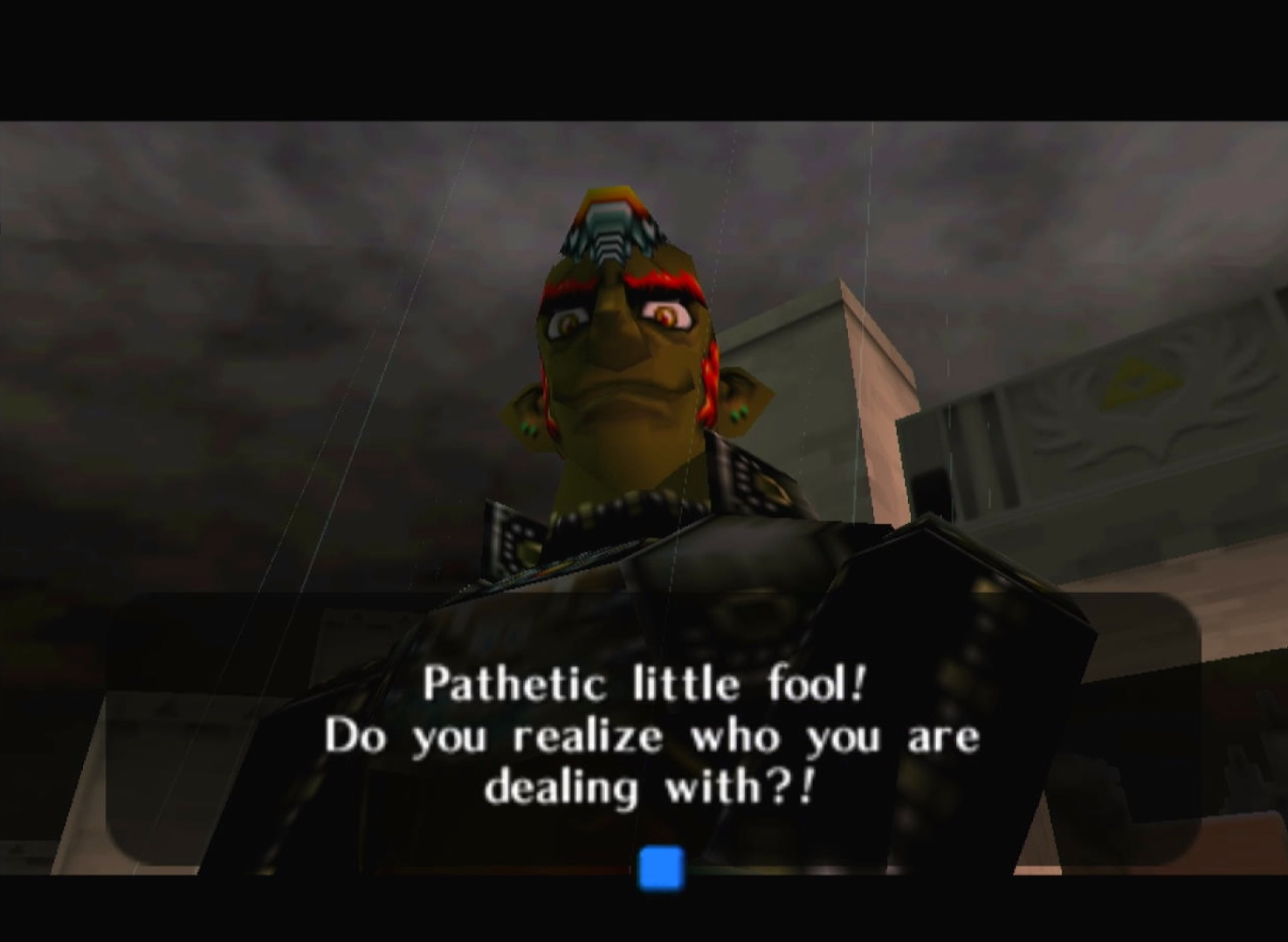
Time progresses, and in real life, without the convenience of being able to go back to when the world is a little cozier and feeling more at-peace. Getting older can usually involve becoming aware of how in constant danger the world is, and how that danger doesn't go away just by ignoring it; there's only one version of the future in this game. And it's on Link to brave adult life in order to put a stop to Ganondorf, with so, so many characters almost hammering in on commenting how much Link has grown. Even if the reality is that it's still a child Link in there, having to put on an adult persona.
The Master Sword endangered the world for that sickass metaphor, appreciate it.
Though for real, for as much CAN be read between the lines, I do think the perhaps more overt messaging by the end is to not discount your childhood, especially while you still have it. Perhaps significantly more wholesome than a guy who is mentally still a child having to save the world from evil, a duty shoved onto him from cosmic higher powers. At least a little bit.
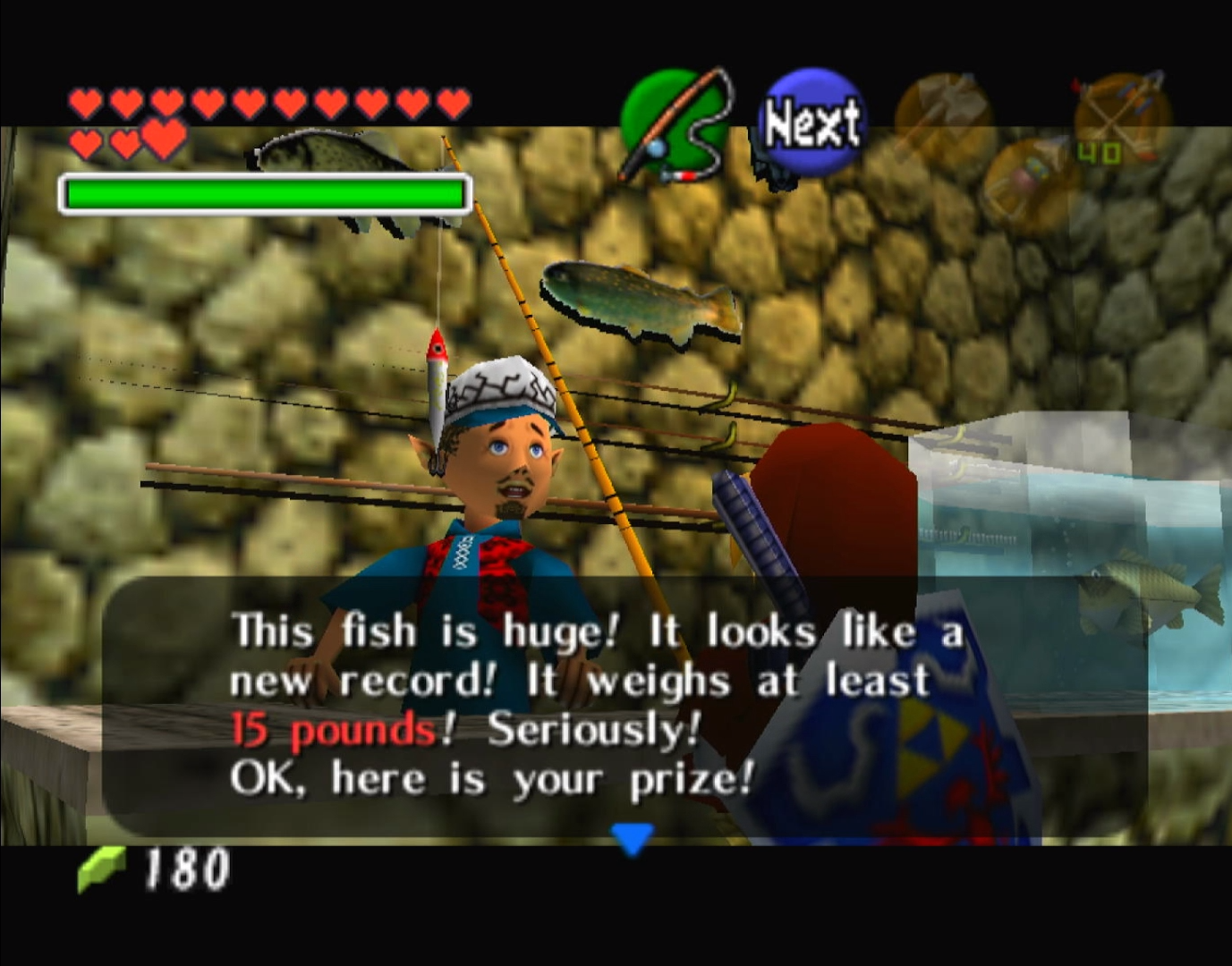
Of course, these praises are more than likely far from a hot take. I'm talking about a game that is, to this day, still one of the highest-praised games of all time. It just about shot off the 3D open world decades before it became the default. It was ridiculously ahead of itself, with ambition that very easily could've crashed and burned like many open-world games after it do. It's perhaps easy to feel like my own praise is a little redundant. And maybe it is; I've not looked at anyone else's opinion on this game and I still feel like I've probably indirectly said something that's been said a dozen times. But it's nonetheless the perspective of somebody that is somehow a 30-something that hasn't played it until now.
Turns out? This game that's beloved by many? Pretty damn good.

Personal Score: 9/10
